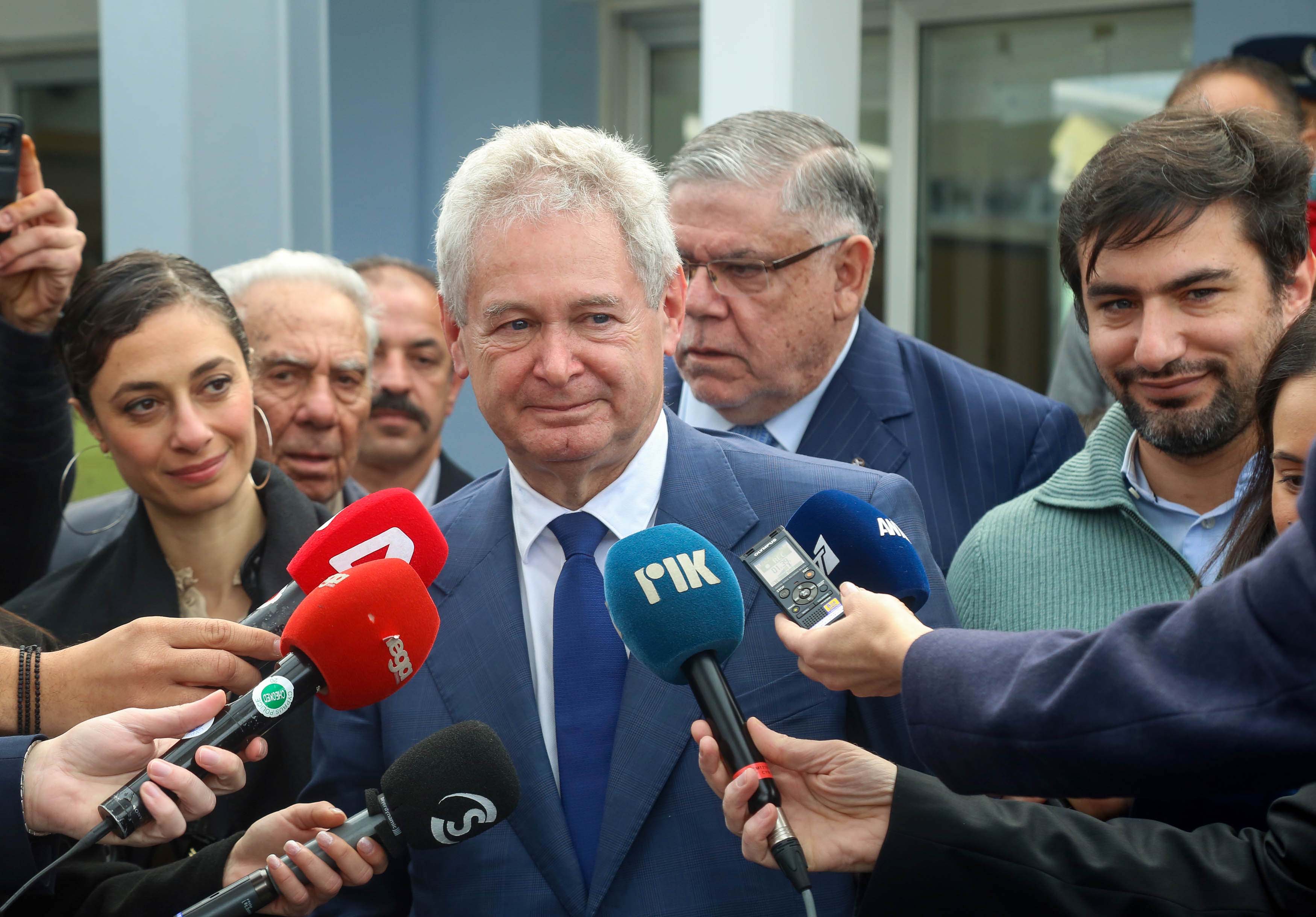UN Secretary-General Antonio Guterres will most likely reappoint Maria Angela Holguin Cuellar as his envoy to Cyprus to prepare the ground for a second meeting of the Cyprus problem, following Tuesday’s enlarged meeting in Geneva, former negotiator Andreas Mavroyiannis has said.
Speaking just hours before the enlarged meeting is set to take place, Mavroyiannis said it was high time government stopped “pulling our leg” and tell the people that the EU was not participating in the meeting, but a representative was orbiting the talks for any information available in order to prepare a report.
The enlarged meeting will see both Cyprus’ sides as well as representatives of the island’s three guarantor powers – Greece, Turkey and the UK – and the United Nations, convene to discuss the Cyprus problem.
In statements to Trito radio, Mavroyiannis said the secretary-general seemed set on appointing Maria Angela Holguin Cuellar as his envoy.
Cuellar had initially been appointed, on January 5, 2024, as the UN chief’s “personal envoy” to Cyprus.
Mavroyiannis said he did not believe the content of a report Cuellar had made to the UN secretary-general during her previous appointment would be made public.
Her effort, he said, was to make some recommendations to the secretary-general on how to handle the issue from thereon.
Mavroyiannis said Monday’s dinner in Geneva “went well as a social dinner and so did President Nikos Christodoulides’ tête-à-tête” with Turkish Foreign Minister Hakan Fidan.
The meeting, he said, was a chat after the dinner in Geneva and “often these talks are very good for determining the intentions of the other side”.
“The fact remains that the secretary-general at this moment is doing his best to keep the process alive, ideally through the creation of preconditions for substantive negotiations and if this does not happen today (Tuesday) – which it seems won’t – at least to have some agreements of a procedural nature for another meeting, potentially with the appointment of an envoy and the encouragement of the sides on the ground to do everything they can with confidence-building measures or other actions that will help the climate,” he said.
Mavroyiannis said “this is where we are at the moment”.
He also said he did not believe Christodoulides’ meeting with Fidan was a bad idea.
“I don’t feel that anything happened that would put us in trouble or in danger and the most probable – although I have no information whatsoever from Geneva – is that they chatted about the situation in our region, the Middle East and the broader region,” he said.
It is possible, he added, that they also touched upon EU-Turkish relations.
“A game is being played at the moment, where Turkey is trying as much as it can and the EU wishes to link Turkey to its new plans in the sector of security and defence and in this context we see the apparent reactivation of the EU in the Cyprus problem with the letter to the secretary-general and everything else to show that it is all in the same package,” he said.
He added that the EU was not invited to the negotiations due to Turkish objections.
“It is time for our government and the presidential palace to respect us and not pull our leg. They can’t tell us that the EU is being represented. The EU is not being represented at the meeting because objections were raised by the Turkish side. The EU sent Giulia Bertezzolo to observe and prepare a report to the Commission. She is not participating,” Mavroyiannis explained.
He added that Bertezzolo’s access to information was through participants.
“In 2021 we had agreed that it was all right for the EU not to participate since it was an informal and procedural meeting, as long as there was a commitment that it would participate when we came to substantive negotiations. This is what must have happened now. Why don’t they say so?” Mavroyiannis wondered.
He also said a letter sent by the EU to the UN chief was “to counterbalance some openings made by the EU to Turkey recently, which caused objections on our side”.
“The EU is steadfast in its readiness to support the effort for a solution,” he said.
Regarding the outcome of Tuesday’s meeting, Mavroyiannis said “the bilateral meetings will be held in the morning and the secretary-general will discuss and gauge the substance and also the procedural matters.”
“Based on the results of these bilateral meetings, in the middle of the plenary, when all the sides have spoken and expressed their positions, the secretary-general, depending on the conclusions he will have drawn, will prepare a draft statement, which will be the topic of discussion during the second part of the plenary,” Mavroyiannis explained.
He added that “if it appears that there is nothing of substance in the second part – which is most likely – he will suggest a second meeting, will speak about the possibility of appointing an envoy and will make a reference to the issue of moves on the ground with confidence-building measures.”
The former negotiator believes there will be some form of timeframe, “for example the secretary-general could say we should meet again in six months and until then his envoy will try to bring the sides closer together.”
Mavroyiannis said the Turkish side would most probably reiterate their position for a two-state solution but “at the same time would bring back direct contact, direct trade and direct flights, saying that at least they should gain this in order to return to the negotiating table.”






Click here to change your cookie preferences